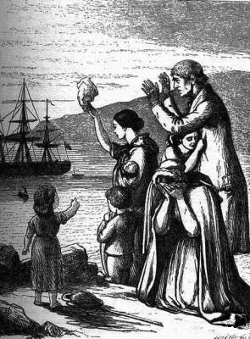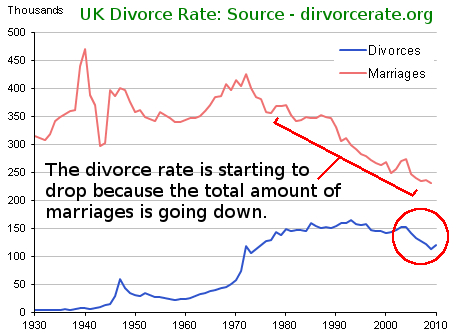The typical Bible-hating scoffer will condemn God's Word for allowing slavery. Before we discuss this issue, it is important to note that Christians do not have any obligation to answer to moral accusations until the atheist can give a justification for morals in an atheist universe, apart from the Christian God of the Bible, which they are unable to do. The only response an atheist has to questions of morality is to attack the Christian God of the Bible, demonstrating that atheists are unable to maintain a rational approach to ethical discussion, and thus, this article is intended only to help Christians understand the Bible's definitions of slavery.
(Read "Everything You Need to Know About Atheism" here at creationliberty.com for more details.)
slave (n): 1. A person who is wholly subject to the will of another; one who has no will of his own, but whose person and services are wholly under the control of another. In the early state of the world, and to this day among some barbarous nations, prisoners of war are considered and treated as slaves. The slaves of modern times are more generally purchased, like horses and oxen.
2. One who has lost the power of resistance; or one who surrenders himself to any power whatever; as a slave to passion, to lust, to ambition.
(See 'slave', Noah Webster's Dictonary, 1828, retrieved Apr 1, 2014, [webstersdictionary1828.com]

When Bible scoffers use the word "slave," they know full well that the average American will immediately think of black African slavery, and that's how they attempt to deceive others. As we see in the definition above, there are many different forms of slavery, so when we talk about slaves, we need to specify which type we're talking about.
Most Christians might be surprised to learn that the word "slave" is only used twice in the entire Bible. (Jer 2:14, Rev 18:13) The places in the Bible where scoffers make accusations of evil in terms of slavery are actually "bondmen" or "servants," which are what we know today as "indentured servants."
indentured servant (n): a person who came to America and was placed under contract to work for another over a period of time, usually seven years, especially during the 17th to 19th centuries. Generally, indentured servants included redemptioners, victims of religious or political persecution, persons kidnapped for the purpose, convicts, and paupers
(See 'indentured servant', Random House Dictionary, 2014, [www.dictionary.com]; See also Collins English Dictionary, 10th Edition, William Collins Sons & Co, 2009)
And if thy brother, an Hebrew man, or an Hebrew woman, be sold unto thee, and serve thee six years; then in the seventh year thou shalt let him go free from thee. And when thou sendest him out free from thee, thou shalt not let him go away empty: Thou shalt furnish him liberally out of thy flock, and out of thy floor, and out of thy winepress: of that wherewith the LORD thy God hath blessed thee thou shalt give unto him. And thou shalt remember that thou wast a bondman in the land of Egypt, and the LORD thy God redeemed thee: therefore I command thee this thing to day.
-Deuteronomy 15:12-15
Masters, give unto your servants that which is just and equal; knowing that ye also have a Master in heaven.
-Colossians 4:1
"By most estimates,between one-half and three-quarters of all white immigrants to the American colonies in the seventeenth centurycame as indentured servants ."
-Gwendolyn Mink & Alice O'Connor, Poverty in the United States, ABC-CLIO, 2004, p. 402, ISBN: 9781576075975
"Of the 200,000 people who crossed the Atlantic from England to North America... Around -Kenneth Morgan, Slavery and Servitude in Colonial North America: A Short History, NYU Press, 2001, p. 8, ISBN: 9780814756706 |
 |
Many of the God-hating scoffers' ancestors would not have made it to the U.S. if they hadn't become slaves because they could not afford the trip. The real risk in the slavery deal was the unknown factor concerning the moral virtues of the master.
Servants, be obedient to them that are your masters according to the flesh, with fear and trembling, in singleness of your heart, as unto Christ; Not with eyeservice, as menpleasers; but as the servants of Christ, doing the will of God from the heart; With good will doing service, as to the Lord, and not to men: Knowing that whatsoever good thing any man doeth, the same shall he receive of the Lord, whether he be bond or free. And, ye masters, do the same things unto them, forbearing threatening: knowing that your Master also is in heaven; neither is there respect of persons with him.
-Ephesians 6:5-9
forbearing (n): ceasing, pausing, withholding from action; patience; long suffering
(See 'forbearing', Noah Webster's Dictonary, 1828, retrieved Apr 14, 2014, [webstersdictionary1828.com])
"The experience of indentured servitude was probably as varied as its demographics.Some indentured servants enjoyed decent treatment by their employers and had good prospects for establishing small farms after gaining their freedom.
On the other hand, historical records indicate that this was not the case for many others.Indentured servants were often beaten, the women were often raped, and intolerable living conditions spelled the death of nearly half of all indentured servants within the first two years of service. "
-Gwendolyn Mink & Alice O'Connor, Poverty in the United States, ABC-CLIO, 2004, p. 403, ISBN: 9781576075975
It was the very Bible-hating scoffers that were buying stolen slaves and putting them to work in horrible conditions. Although some black-African slave owners may have claimed to be "Christians," they did not follow the Bible in their daily lives, as Christians are instructed to do.
Bring forth therefore fruits meet for repentance:
-Matthew 3:8
But shewed first unto them of Damascus, and at Jerusalem, and throughout all the coasts of Judaea, and then to the Gentiles, that they should repent and turn to God, and do works meet for repentance.
-Acts 26:20
Examine yourselves, whether ye be in the faith; prove your own selves. Know ye not your own selves, how that Jesus Christ is in you, except ye be reprobates?
-2 Corinthians 13:5
But exhort one another daily, while it is called To day; lest any of you be hardened through the deceitfulness of sin.
-Hebrews 3:13
If a brother or sister be naked, and destitute of daily food, And one of you say unto them, Depart in peace, be ye warmed and filled; notwithstanding ye give them not those things which are needful to the body; what doth it profit? Even so faith, if it hath not works, is dead, being alone.
-James 2:15-17
 |
Specifically concerning the black African slaves, misleadingly referred to by Bible-haters scoffers when they use the term "slave" in a general sense, the Bible has a much clearer solution for the owners of stolen men:
And he that stealeth a man, and selleth him, or if he be found in his hand, he shall surely be put to death. |
Further still, look at what the Bible says was supposed to be done to slaves that escaped a cruel master, and fled to another home to seek refuge:
Thou shalt not deliver unto his master the servant which is escaped from his master unto thee: He shall dwell with thee, even among you, in that place which he shall choose in one of thy gates, where it liketh him best: thou shalt not oppress him.
-Deuteronomy 23:15-16
And according to Christian doctrine, those of us who are brethren in the Lord Jesus Christ are all equal in station:
There is neither Jew nor Greek, there is neither bond nor free, there is neither male nor female: for ye are all one in Christ Jesus.
-Galatians 3:28
The contradiction to these Biblical standards is called "chattel slavery," which is the type of slavery that Bible-hating scoffers deceptively and secretly refer to when they say the word "slave."
chattel (n): a movable article of personal property; such as furniture, domestic animals, etc
(See 'chattel', Random House Dictionary, 2014, [www.dictionary.com]; See also Collins English Dictionary, 10th Edition, William Collins Sons & Co, 2009)
And if a man sell his daughter to be a maidservant, she shall not go out as the menservants do. If she please not her master, who hath betrothed her to himself, then shall he let her be redeemed: to sell her unto a strange nation he shall have no power, seeing he hath dealt deceitfully with her. And if he have betrothed her unto his son, he shall deal with her after the manner of daughters. If he take him another wife; her food, her raiment, and her duty of marriage, shall he not diminish. And if he do not these three unto her, then shall she go out free without money.
-Exodus 21:7-11
What the average American today doesn't comprehend is that the prices paid for betrothal for a wife could typically only be paid by those who were in a higher class of wealth. This was both beneficial to the girl, and to the family as a whole. A poor family could be provided for by the money paid for the betrothal, and the young girl would then move into a home of higher class, providing more for her than her father could provide.
If she please not her master, who hath betrothed her to himself, then shall he let her be redeemed: to sell her unto a strange nation he shall have no power, seeing he hath dealt deceitfully with her.
-Exodus 21:8
So the girl serves in that household until she is old enough to marry her betrothed, and then becomes the lady of the household, with servants at her disposal. Assuming her husband follows God's Word, he is supposed to love, provide, and care for her, and any children she bears him, and even if he were to take another wife, not one bit of food, clothing nor any other love and care are to be taken from her.
If he take him another wife; her food, her raiment, and her duty of marriage, shall he not diminish.
-Exodus 21:10
And if he have betrothed her unto his son, he shall deal with her after the manner of daughters.
-Exodus 21:9
And if he do not these three unto her, then shall she go out free without money.
-Exodus 21:11
So next, the typical God-hating scoffer will complain about how God is a bad guy because these women couldn't choose for themselves and had other people choosing for them. Aside from the fact that the girl would be raised to a higher level status in a wealthier class to have servants of her own, which is basically what a princess is (and most little girls dream of being a princess), I'd like to point out the hypocrisy that today, in a society where everyone chooses for themselves, we have an incredibly high divorce rate.
(Read "The Biblical Understanding of Wedding & Marriage" here at creationliberty.com for more details.)
"50% of first marriages,67% of second and74% of third marriages end in divorce in the USA (Baker, 2007). In Finland, 29,952 marriages were contracted and 13,619 dissolved in 2010 (Statistics Finland, 2010a)."
-Kaarina Maatta & Satu Uusiautti, Many Faces of Love, Springer, 2013, p. 63, ISBN: 9789462092068
These statistics don't point out how many couples today don't even bother getting married, but live together, fornicating with one another, and then later moving out and finding someone else to do the same thing with all over again. The following chart (from divorcerate.org) shows divorces in the UK over the past century, where the number of marriages is going down, and the number of divorces is going up.

He saith unto them, Moses because of the hardness of your hearts suffered you to put away your wives: but from the beginning it was not so.
-Matthew 19:8
(Read "Unbiblical Cop-outs: Don't Judge Me!" here at creationliberty.com for more details.)
Leviticus 25 makes it very clear that the servants purchased were property of the buyer, but all servants that were purchased by a household were to be returned to their families in the year of Jubilee (every 50 years).
But as an hired servant, and as a sojourner, he shall be with thee, and shall serve thee unto the year of jubile: And then shall he depart from thee, both he and his children with him, and shall return unto his own family, and unto the possession of his fathers shall he return. For they are my servants, which I brought forth out of the land of Egypt: they shall not be sold as bondmen. Thou shalt not rule over him with rigour; but shalt fear thy God.
-Leviticus 25:40-43
Then shalt thou cause the trumpet of the jubile to sound on the tenth day of the seventh month, in the day of atonement shall ye make the trumpet sound throughout all your land. And ye shall hallow the fiftieth year, and proclaim liberty throughout all the land unto all the inhabitants thereof: it shall be a jubile unto you; and ye shall return every man unto his possession, and ye shall return every man unto his family.
-Leviticus 25:9-10
Why do the heathen rage, and the people imagine a vain thing? The kings of the earth set themselves, and the rulers take counsel together, against the LORD, and against his anointed, saying, Let us break their bands asunder, and cast away their cords from us. He that sitteth in the heavens shall laugh: the Lord shall have them in derision.
-Psalm 2:1-4
Because that, when they knew God, they glorified him not as God, neither were thankful; but became vain in their imaginations, and their foolish heart was darkened. Professing themselves to be wise, they became fools,
-Romans 1:21-22
And even as they did not like to retain God in their knowledge, God gave them over to a reprobate mind, to do those things which are not convenient; Being filled with all unrighteousness, fornication, wickedness, covetousness, maliciousness; full of envy, murder, debate, deceit, malignity; whisperers, Backbiters, haters of God, despiteful, proud, boasters, inventors of evil things, disobedient to parents, Without understanding, covenantbreakers, without natural affection, implacable, unmerciful: Who knowing the judgment of God, that they which commit such things are worthy of death, not only do the same, but have pleasure in them that do them.
-Romans 1:28-32
In meekness instructing those that oppose themselves; if God peradventure will give them repentance to the acknowledging of the truth;
-2 Timothy 2:25
And with all deceivableness of unrighteousness in them that perish; because they received not the love of the truth, that they might be saved.
-2 Thessalonians 2:10













![There is No Saving Grace Without Repentance [creationliberty.com]](../images/store13a.jpg)
![Why Christians Should Study The King James Bible [creationliberty.com]](../images/store15a.png)
![Wolves in Costume: Kent Hovind [creationliberty.com]](../images/store11a.jpg)
![Corruptions of Christianity: Seventh-day Adventism [creationliberty.com]](../images/store09a.png)
![501c3: The Devil's Church [creationliberty.com]](../images/store07a.jpg)
![Feminism: Castrating America [creationliberty.com]](../images/store04a.jpg)










![Why Millions of Believers on Jesus Are Going to Hell [creationliberty.com]](images/store05a.jpg)
![Corruptions of Christianity: Catholicism [creationliberty.com]](http://www.creationliberty.com/images/store14a.jpg)
![False Prophet Profiles: Kim Clement [creationliberty.com]](http://www.creationliberty.com/images/store12a.jpg)
![Christmas: Rejecting Jesus [creationliberty.com]](http://www.creationliberty.com/images/store10a.jpg)
![Christian Music: For The Love of Money [creationliberty.com]](images/store08a.png)
![Psychology: Hoodwinked by the Devil [creationliberty.com]](images/store06a.jpg)
